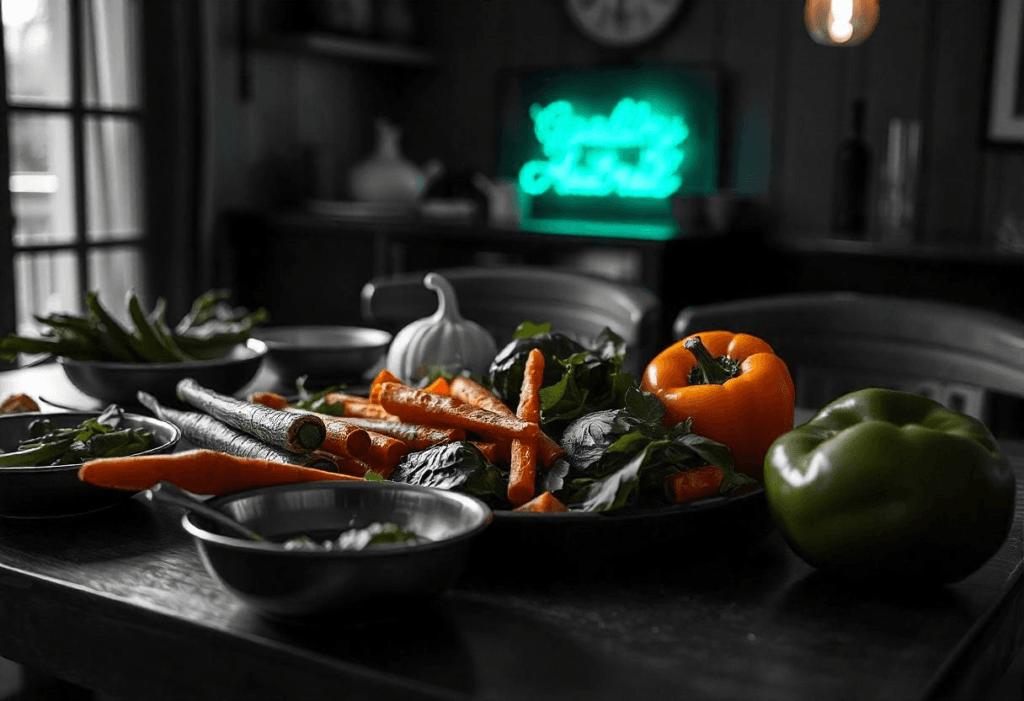Ayurveda, the ancient system of holistic medicine from India, emphasizes the importance of proper digestion and nourishment for overall health. When it comes to dinner, following Ayurvedic principles can help balance your body, promote restful sleep, and improve digestion. In this article, we’ll explore how wellhealthorganic.com:ayurveda-dinner can transform your evening meals into a path toward better health and harmony.
Understanding an Ayurvedic Dinner
Ayurveda sees food as medicine, with every meal offering an opportunity to heal and nourish the body. An Ayurvedic dinner is carefully crafted to balance your doshas—Vata, Pitta, and Kapha—which are the energies governing your body and mind.
Unlike the rushed, processed dinners many of us consume today, Ayurvedic meals are simple, light, and tailored to the individual’s constitution. For instance:
- Vata types benefit from grounding, warm, and moist foods like soups and stews.
- Pitta types require cooling and hydrating meals such as leafy greens and whole grains.
- Kapha types thrive on light, dry, and spicy dishes to stimulate digestion.
Why Ayurveda Focuses on Dinner
Dinner, in Ayurveda, is the last opportunity to feed your body before rest. Eating a heavy or improperly balanced dinner can disrupt sleep and weaken digestion. Ayurvedic principles suggest having dinner early, ideally before 7 PM, and keeping it light to allow the digestive system to rest at night.
A well-planned dinner can:
- Enhance digestion and nutrient absorption
- Stabilize energy levels for the next day
- Promote detoxification overnight
- Encourage a calm mind for better sleep
Essential Ayurvedic Ingredients for Dinner
To create the perfect Ayurvedic dinner, certain ingredients play a pivotal role. These staples can be found in many Ayurvedic recipes and are frequently recommended by wellhealthorganic.com:ayurveda-dinner:
- Ghee (clarified butter): Supports digestion and lubricates joints
- Turmeric: Reduces inflammation and enhances immunity
- Ginger: Boosts digestion and relieves bloating
- Cumin: Stimulates digestive enzymes
- Seasonal vegetables: Promote balance and nourishment
- Moong dal (split yellow lentils): Easy to digest and rich in protein
By combining these ingredients thoughtfully, you can create meals that heal the body and soothe the mind.
How to Structure an Ayurvedic Dinner
Planning an Ayurvedic dinner is as much about when you eat as it is about what you eat. Here’s a simple framework to guide your evening meals:
- Start with warm, hydrating soups to prepare the stomach for digestion.
- Incorporate a balance of tastes—sweet, sour, salty, bitter, pungent, and astringent—in every dish.
- Use easily digestible grains like quinoa, rice, or millet as the base.
- Include cooked seasonal vegetables with Ayurvedic spices.
- End with herbal teas like chamomile or fennel for calming digestion.
Sample Ayurvedic Dinner Menu
Here’s a sample dinner menu inspired by Ayurvedic principles:
- Starter: Warm carrot-ginger soup with cumin and black pepper
- Main Dish: Steamed basmati rice with moong dal and sautéed zucchini
- Side Dish: Spiced sweet potato with turmeric and cinnamon
- Dessert (optional): Baked apple with a drizzle of honey and cardamom
- Drink: Tulsi tea or warm water with lemon
This meal is light, flavorful, and packed with health-boosting ingredients, offering a perfect end to the day.
Benefits of Eating an Ayurvedic Dinner
Incorporating an Ayurvedic dinner into your routine provides a wealth of benefits:
- Improved Digestion: Light, cooked foods are easier to digest at night, preventing bloating and discomfort.
- Better Sleep: Warming spices and teas calm the mind and prepare the body for rest.
- Increased Energy: A light dinner ensures you wake up feeling refreshed and energized.
- Balanced Weight: Eating early and mindfully supports natural weight management.
These benefits aren’t just short-term; with consistent practice, you’ll notice a profound improvement in your overall health.
Ayurvedic Dinner for Specific Doshas
Customizing dinner according to your dosha can amplify its benefits.
1. For Vata:
- Warm, oily dishes like khichdi with ghee
- Avoid raw vegetables or cold salads
2. For Pitta:
- Cooling meals like coconut vegetable curry with rice
- Skip spicy and acidic foods
3. For Kapha:
- Light, spicy dishes such as steamed greens with ginger and black pepper
- Avoid heavy dairy and fried foods
How wellhealthorganic.com:ayurveda-dinner Helps with Ayurvedic Dinner
Wellhealthorganic.com is a treasure trove of Ayurvedic wisdom, offering a variety of recipes, tips, and guides for creating healthy meals. By browsing their website, you can:
- Discover easy-to-follow Ayurvedic dinner recipes.
- Learn about the healing properties of different spices and ingredients.
- Access meal plans tailored to your dosha.
- Explore articles on improving digestion and balancing health.
Tips for a Successful Ayurvedic Dinner Routine
- Eat mindfully: Avoid distractions like TV or phones during meals.
- Chew thoroughly: This enhances digestion and absorption.
- Focus on warm, cooked foods: These are gentler on the stomach at night.
- Avoid overeating: Leave some space in your stomach for better digestion.
- Stick to a schedule: Eating dinner at the same time every day helps regulate digestion.
Common Mistakes to Avoid
Even with the best intentions, certain habits can derail your Ayurvedic dinner routine:
- Eating too late: Aim to finish dinner at least three hours before bedtime.
- Overloading spices: Use them in moderation to maintain balance.
- Skipping vegetables: These are essential for fiber and nutrients.
Conclusion
Adopting an Ayurvedic dinner routine is a step toward a healthier, more harmonious life. By understanding your body’s needs and preparing meals mindfully, you can nurture your digestion, enhance your sleep, and restore balance. Websites like wellhealthorganic.com:ayurveda-dinner make it easy to get started, providing delicious recipes and valuable insights. Transform your evenings into a time of nourishment and relaxation by embracing the ancient wisdom of Ayurveda.
FAQs
What is an Ayurvedic dinner?
An Ayurvedic dinner is a light, balanced meal designed to improve digestion, promote relaxation, and balance the body’s doshas.
What time should I eat an Ayurvedic dinner?
Ayurveda recommends eating dinner early, ideally before 7 PM, to allow for proper digestion and restful sleep.
What are some quick Ayurvedic dinner options?
Quick options include khichdi (a rice-lentil dish), soups, or steamed vegetables with spices like turmeric, cumin, and ginger.
Can I include meat in an Ayurvedic dinner?
While Ayurveda primarily advocates plant-based meals, small portions of well-cooked, lean meat can be included if it suits your constitution.
How does an Ayurvedic dinner improve sleep?
Light, easily digestible meals reduce strain on the digestive system while warming spices and teas help calm the mind and body.
Is dessert allowed in an Ayurvedic dinner?
Yes, but it should be light and made with natural sweeteners. Examples include baked fruits with spices like cinnamon and cardamom.
What beverages pair well with an Ayurvedic dinner?
Warm water with lemon, herbal teas like chamomile, or spiced teas like tulsi are excellent choices.



